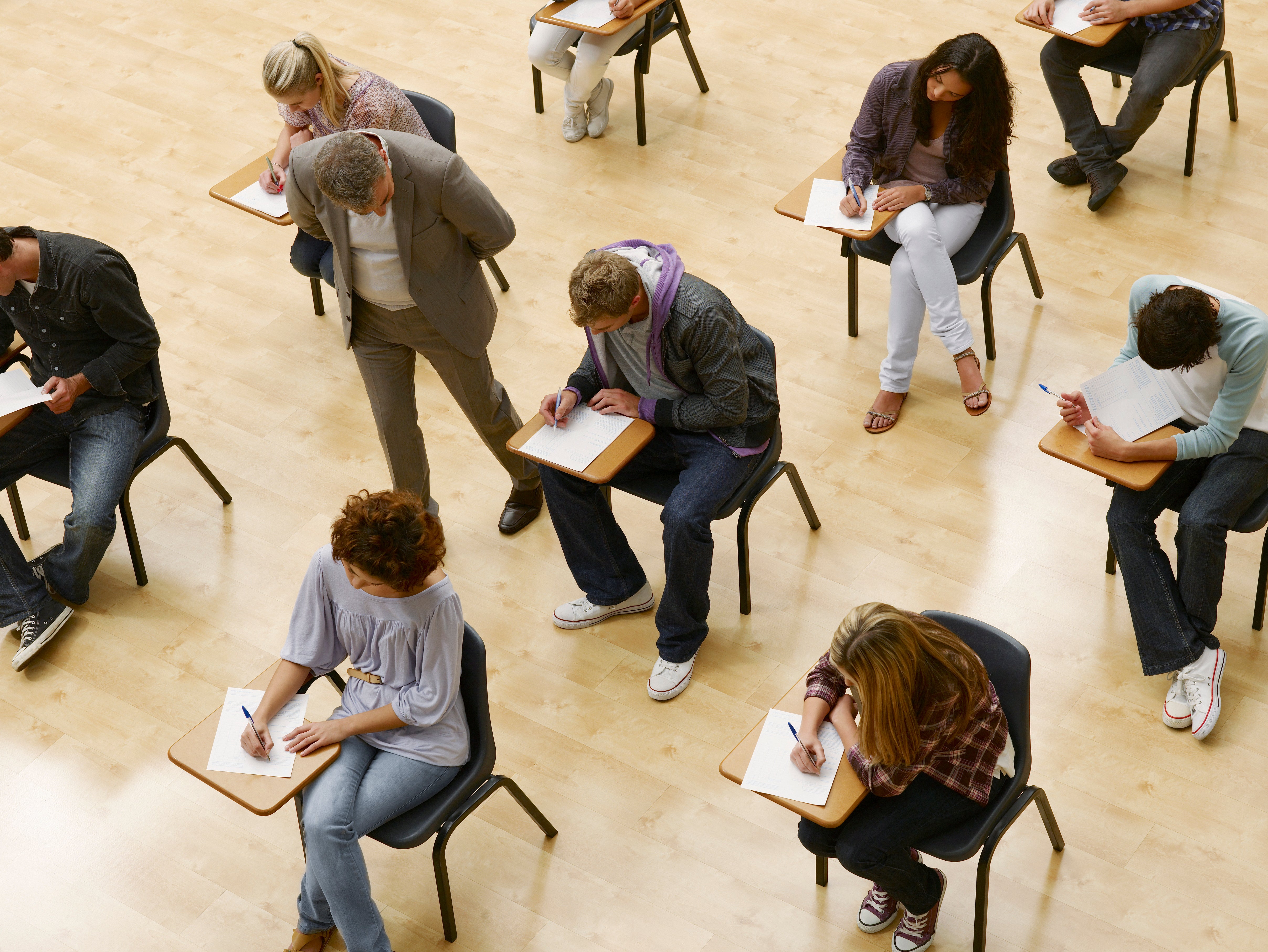This year’s A-level results reveal profound inequalities between young people across the UK
It was already bad pre-pandemic – but it’s got worse, writes Ed Dorrell


Are today’s A-level results the beginning of the end of the multiple exam fiascos that have beset the Covid pandemic?
Certainly ministers, exam boards, exam regulators and, most importantly, schools, teachers and students will be desperately hoping so.
As of this afternoon, most indications suggest that such hope would not be misplaced.
It has taken a huge effort to reintroduce formal exams for 2022 while simultaneously beginning to reverse the two years of rampant grade inflation that came with the extraordinary, but necessary, decision to hand over students’ results to their teachers in 2020 and 2021.
All things being equal, it looks like this process has gone reasonably well. On average, grades appear to have been lowered reasonably equally across the board – and with a degree of control that has not hitherto, ahem, been something most people have associated with the authorities’ educational interventions during Covid.
It would also seem that university admissions, which some had warned might become messy as a result of yet another year of changes to the administration of A-levels, appear to be going OK.
But this is not to say that there is nothing to see here. Because there is.
The truth of the matter is that this year’s results have once again revealed the profound inequalities experienced by young people over the course of Covid.
In the case of A-levels, this is best demonstrated by the regional divide that had emerged. It was already bad pre-pandemic, but it’s got worse.
While the gap between the South and the North East, for example, was between four and five percentage points in 2019, today it is more than eight percentage points. This picture is replicated across the north.
The shadow education secretary, Bridget Phillipson, herself from the North East, put it succinctly:
“Students in the North East are no less capable, but after 12 years of Conservative governments they’re seeing their results go backwards compared to their peers across the south of England.”
Put simply, if you’re from an area of the country that has more profound economic challenges than other areas, you are more likely to have been punished educationally by the decision to shut schools during lockdown.
It will come as no surprise that it was harder to introduce remote teaching and learning in communities where in many homes access to the internet is limited to mum’s mobile. Or in places where most children struggle to find a quiet place to learn because they don’t have a room of their own. Or where family life simply isn’t conducive to maintaining the discipline of tuning into every lesson voluntarily.
To keep up to speed with all the latest opinions and comment, sign up to our free weekly Voices Dispatches newsletter by clicking here
However, the fact of the matter is that, as I mentioned earlier, most ministerial efforts to mitigate the effects of Covid on students’ learning were bungled. The rollout of free laptops? A mess. The provision of a National Tutoring Service? At best, a shambles. A promised multibillion-pound education catch-up programme? Diluted out of all recognition.
And so, yes, 2022’s A-level exams were administered relatively smoothly. And, yes, it would appear that rampant grade inflation is being brought back under control. Those involved in this feat of administration should be congratulated.
We should also spend a good chunk of time congratulating the actual students for getting to the end of an incredibly challenging educational experience in one piece, completing courses and sitting exams. Chapeau.
But let’s not kid ourselves: today’s exam results have once again exposed the open sore of educational inequality in this country. A sore that the salt of Covid has only inflamed further.
Ed Dorrell is a director at Public First






Join our commenting forum
Join thought-provoking conversations, follow other Independent readers and see their replies
Comments